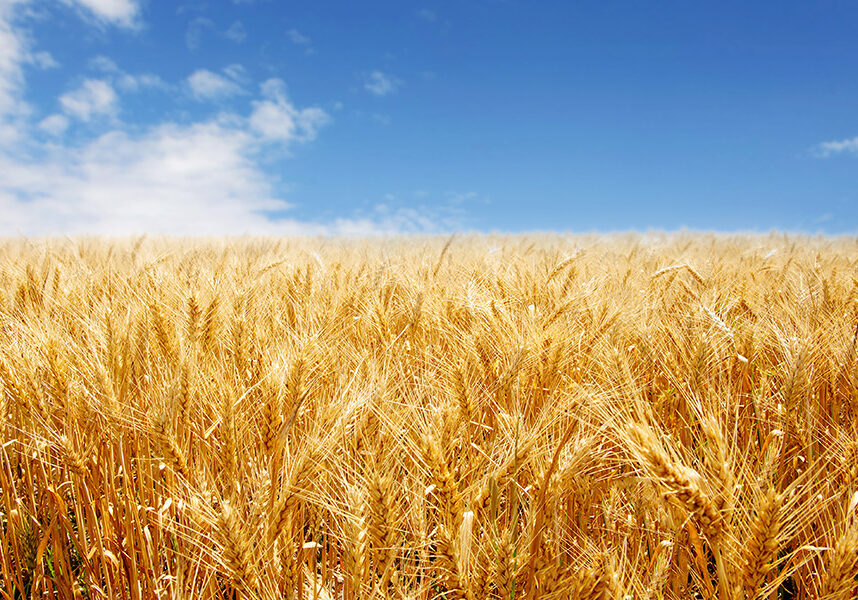
While no two farmers follow the same schedule, winter is generally devoted to more “indoor” tasks. Marci Green from Green View Farms in Spokane County points out that many bookkeeping tasks, such as paying bills, marketing crops, payroll, monitoring budgets, and cash flow, happen throughout the year. In this Q&A, she focuses on the tasks she does primarily in the late fall through early spring.
What kind of bookkeeping tasks do you generally do at this time of the year?

As soon as harvest wraps up, we need to calculate our yields and report them to our crop insurance agent. More importantly, we communicate with our landlords about how the harvest went, and what yields we had on their farm. We also verify our crop inventory, both in home storage and in local elevators. If we have crop insurance claims, we need to notify our agent as soon as we realize we have a loss, but then we need to work with adjusters to report the production. We need to enroll wheat (and other fall-seeded crops) in the federal crop insurance program by Sept. 30, so this is when we make sure we have the desired levels of insurance for the upcoming year.
This is also the time of year we make annual cash rent payments to landlords. Most of our leases are on a crop share basis but we do have a few pieces of ground that we lease on a cash rent basis. The fall is a good time to review our lease terms and, if it is time to renew, communicate with the landlord about our desire to continue farming their ground and any changes we would like to see in the lease terms.
The biggest winter bookkeeping task is tax planning. We work with our tax accountant and plan for year-end. We estimate what our taxable income will be for the year, and what we expect our tax liability to be. We update our depreciation schedules and determine if there are expenses or income that we can, or should, defer to next year. After year end, we work with our tax accountant to file our returns and pay taxes. I also do the bookkeeping for one landlord group which is set up as an LLC. I need to keep track of the due dates for each return and consider what returns need to be prepared and filed first.
This is also the time for annual meetings. Depending how an entity is structured, it may or may not hold an annual meeting. One of our landlord entities invites us, as the farm operator, to their annual meeting, so I need to prepare reports to present at their meeting.
Are there bookkeeping/paperwork tasks that you usually do in the winter?
The main thing that must be done in the winter is anything related to year end, particularly income taxes. Crop insurance, FSA, and the Natural Resources Conservation Service (NRCS) all have various deadlines for applying, enrolling and reporting. Many of these deadlines come up during the winter months. Winter is also a good time to review and update our estate planning. This is primarily because this is when we, as a family, have time to work on these projects that get pushed aside during the seasons when we are busy with fieldwork.
Winter is the preferred time for repairs and maintenance on equipment and buildings. We often go through each machine and make sure it is in good operating condition and ready for the next year. If we are going to make any equipment purchases or trades and build or remodel buildings or grain bins, this is also a good time to make these changes.
On our farm, we store a lot of our wheat in home storage. As a result, the winter has become wheat-hauling season, when we deliver it to the elevator or directly to a local mill. Road conditions have an impact on the timing of this as well.
Finally, winter is meeting season. The local cooperatives and crop protection retailers have grower meetings which are educational and informative. Of course, we also attend the Tri-State Grain Growers Convention and several of the Agricultural Marketing and Management workshops.
How far ahead do you plan what you’ll be planting where?
We always have a general idea of what we’ll be planting in each field each year. It is best to get our seed ordered a couple months before we will need it, so we try to firm up our plans, including what varieties we want to plant, ahead of time. This ensures that the seed will be available when we need it. At the same time, if conditions change in the markets and/or the weather, we might change our plans right up until the seed goes into the ground.
What factors do you take into consideration when planning your crop rotations?
Some farmers have set rotations that they rarely vary. We are fortunate that we are able to be very diversified. We grow winter and spring wheat, Kentucky bluegrass seed, malt barley, canola, and legumes such as dry peas, lentils, and chickpeas. We also grow a little alfalfa. In general, a spring crop will follow winter wheat. We consider what crops have been grown in each field in previous years, what chemicals have been used on it and if any residuals will affect the new crop, what weeds are prevalent in a specific field that need to be controlled, and soil health. We also try to minimize our tillage so that impacts our rotation as well.












